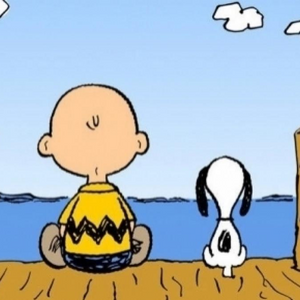Joy and Gratitude - “the oil that lubricates community”
During the recent school break, I was fortunate enough to holiday in Fiji with my three boys and wife, Katrina.
Although extremely excited and impressed by the scenery, water, surfing, snorkelling, fishing etc, it was the Fijian people who really caught my attention.
I was struck by their deep sense of connection, community, gratitude and joy. Whether I experienced this at the resort, on the surf guide boat, in the taxi, at the shops or at the airport, the Fijians exuded joy. Looking me in the eye to say ‘Bula (hello)’ or ‘Vinaka (thank you)’, singing, humming, laughing, joking with each other, referring to us as ‘family’ - their joy was pervasive and inspirational. Despite having less, they appeared incredibly grateful for what they did have!
Gratitude is a powerful emotion that allows us to recognise and value the positive aspects of our lives. When we express gratitude, our brain releases dopamine and serotonin — activating the brain’s reward system and reinforcing positive emotions. Over time, this rewiring of neural pathways makes individuals more resilient to stress and more likely to approach life’s challenges with a positive outlook.
A review of the scientific literature on gratitude compiled dozens of studies that link our gratitude to ‘wellness’. For example, researchers have found that gratitude is associated with:
- physical health
- stronger relationships
- greater likelihood of forgiving
- better sleep
- decreased stress and depression
- greater optimism and resilience
With gratitude comes increased engagement in school and the surrounding community, better personal support networks, and less envy and materialism being exhibited.
How can parents empower their children to be grateful?
Regardless of the inherent or current level of someone's gratitude, it's a quality that individuals can successfully cultivate further - especially if assisted to do so at a young age by their parents. Gratitude is a “chosen attitude,” which can squeeze out its inverse, ‘entitlement’, which can be destructive.
Parents can assist in harnessing the power of gratitude in the following ways:
1. Role model gratitude and teach your son to think gratefully.
Express gratitude often, by speaking it, writing it, ‘gifting it’.
2. Be present and empathetic with your son.
Spending time with your children is, of course, good. Spending time when you're fully present, enjoying each moment, and ready to express empathy and understanding is priceless.
3. Encourage autonomy.
Experiencing independence breeds appreciation for all the support your son is already receiving. He is then more likely to express that appreciation outwardly.
4. Nurture their strengths.
Nurturing your son’s strengths builds confidence. Confidence builds self-appreciation, which makes it easier to see and appreciate things around you (as you're not busy combating feelings of inadequacy). You can even encourage him to directly use his strengths to show gratitude.
5. Encourage them to accumulate growth, not gadgets.
Materialistic goals, when met, rarely lead to genuine gratitude. When you encourage a child to focus on developing deeper connections with people or the community and on pursuing experiences that pique their interest and help them achieve growth, it's much more likely to foster gratitude.
6. Give them a hand in lending helping hands.
Encourage your son to look for opportunities to help others, again role-modelling it yourself as a closely held value. This is one of the most direct routes possible towards encouraging gratitude.
7. Help them to find what matters to them.
When kids find something that's important to them, something bigger than themselves, (like a social issue, cause, or form of service), they appreciate the larger picture of life and what they can do to affect it.
As I arrived back in Australia, I experimented by trying to connect with members of the public and airport workers by saying ‘hello’, only to be ignored or looked at peculiarly.
I’m thankful that at Mosman Prep, relationship, connection and community lie at the heart of who we are. It is our foundation. We look each other in the eye, smile, say ‘hello’ or stop for a chat. We seek to be joyful and model gratitude, even when it’s hard, and we’re there to support each other, showing respect and compassion in our interactions.
We are ‘a village’ and because of this we are stronger and can support our boys and each other to thrive.
What a blessing and joy it is to be part of the Mosman Prep community; a community forged over its rich one hundred and twenty-one year history. It’s something for which we should be grateful and guard fiercely.
But the fruit of the Spirit is love, joy, peace, patience, kindness, goodness, faithfulness. Galatians 5:22
A joyful heart is good medicine, but a crushed spirit dries up the bones. Proverbs 17:22
Peter Grimes | Headmaster
References:
Changing Perspectives (2024) - Teaching Gratitude in the Classroom
Arjun Walia (2019) - Scientists Show How Gratitude Literally Alters the Human Heart & Molecular Structure of the Brain - Collective Evolution
Scott Mautz (2018) - Want Your Child to Be More Grateful? Science Says Do These 7 Things - Inc.com
Jeffrey Froh and Giacomo (2014) - Seven Ways to Foster Gratitude in Kids - Greater Good Magazine













